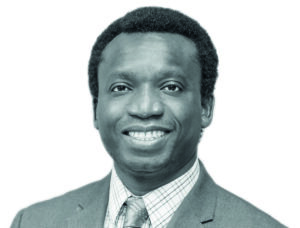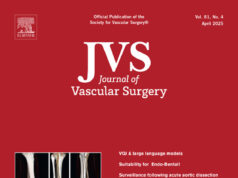
As a vascular surgery trainee, there are multiple aspects of vascular surgery that I’ve had the opportunity to learn about. And to be honest, I’m still learning.
To that end, the SVS has put a great deal of effort in providing multiple opportunities to supplement our formal curriculum and cater to various academic and clinical interests through a number of short courses or fellowships. As trainees, I find that these are invaluable to fill gaps in the curriculum that may not exist at individual institutes.
In this issue of Vascular Specialist, the SVS VQI Fellowship-In-Training (FIT) program is highlighted. This program was developed to support the curation of a cadre of trainees (general surgery, vascular surgery, cardiology, etc.) in the scientific pursuit of analysis of clinical data. I imagine that this pipeline of fellows will be important to shaping future policy in the world of vascular surgery.
Another program supported by the SVS and aimed towards trainees is the Journal of Vascular Surgery (JVS) internship— now in its third year. This program is developing a pipeline of conscientious reviewers who will bring a diverse and nuanced approach to journal manuscript reviews to elevate the quality of work published in the JVS journals.
Interested in the business of vascular surgery—including how coding, reimbursements and policy are intertwined? Then the annual SVS Coding & Reimbursement Workshop is for you. This 1.5-day course provides an extensive review of coding and critical updates. In addition to becoming savvy in coding and billing for cases/procedures, it helps to shine a light on the importance of policy reforms that affect billing codes and reimbursements for vascular surgery services.
But academic pursuits are not the only domain where the SVS has developed programming. In this issue, there is a highlight on the Complex Peripheral Vascular Intervention (CPVI) Skills Course in which participants will be exposed to didactic and hands-on-training on the innovative aspects of interventions for peripheral arterial disease (PAD), including endovascular, open and hybrid options. This is a course for vascular surgeons, developed by vascular surgeons. It’s a quick two-day course at the SVS office headquarters.
Another course with a similar flavor, although not formally supported by the SVS, is the Advanced Practical Exposures in Vascular Surgery (APEX) held at the St. Louis University hospital every fall. This course provides an invaluable hands-on experience to less commonly encountered exposures in the neck, chest, abdomen and lower extremities. The highlight of the course is the “How I Do It” didactic sessions prior to the cadaver exercises.
And of course, there is the UCLA/SVS course that provides a comprehensive review of vascular surgical techniques. Held every August in Los Angeles, this three-day course is invaluable to the graduating vascular trainee and is often subsidized for trainee attendance.
In addition, there are multiple opportunities to engage in courses offered through the likes of local regional societies and VAM. If there were any course I’d like to see developed, it is one that focuses on vascular trauma. I think that could be helpful to identify best practices for this vulnerable patient population. Nevertheless, as a trainee, I’m glad that these opportunities exist to plug knowledge gaps that exist in every program—and I hope that you too are able to partake in some of these courses.
Christopher Audu, MD, is the Vascular Specialist resident/fellow editor. He is an integrated vascular surgery resident at the University of Michigan in Ann Arbor, Michigan.












